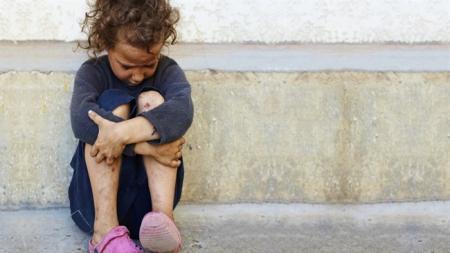
She understands poverty. To prevent child abuse and neglect — two symptoms of poverty — everyone else should understand it too, she said, nwitimes.com reported.
"We have people from a middle class background who look in at people in poverty and explain their behaviors," Beegle, a speaker and writer on poverty, told the 27th annual Indiana University Northwest Forum on Child Abuse and Neglect on Friday. "You cannot know the why behind that person's behavior."
She said she still gets nervous around police officers, even though she now trains them in communicating with people in poverty.
The only interactions she had with cops growing up was when they were hauling her brothers away to jail or evicting her family from wherever they were living at the time.
She recalled having an attitude with social workers trying to help her because she resented that they didn't have to struggle like her.
She said people who lack resources are often angry or defensive because they're used to living in the 'war zone of poverty', where they might watch their mom go hungry so they can eat or get locked up for not paying a fine they can't afford.
"When humans don't have their needs met, what kind of mode are they in?" she asked. "Survival."
She suggested that social workers, attorneys, educators — anyone who works with people in poverty — study the history and emotional effects of poverty. That will improve communication and go a long way toward preventing abuse and neglect before it happens.
Indiana had the fourth-highest rate of child abuse and neglect in the nation in 2015, according to the US Department of Health and Human Services.
"Martin Luther King said if you don't talk about race, you're not going to do anything about racism," she said. "Same goes for poverty."
Having a modern-day version of President Lyndon Johnson's War on Poverty would solve many social problems, child abuse and neglect included, she said.
"The answer to poverty is people. It's people who are poverty-informed. It's people who reach out to the community. It's people who seek to understand," she said.
Another symptom of poverty is incarceration. In Indiana, that's an issue that disproportionately affects children. The state ranks second in the nation for the percentage of kids with parents behind bars, according to the National Survey of Children's Health.
"We want to turn out men who are better fathers and women who are better mothers," Rick Rosales, director of community and mentor engagement for the Indiana Department of Correction, said at Friday's forum.
The state DOC has implemented programs in recent years to foster that parent-child bond despite incarceration. The prisons offer parenting and fatherhood classes.
Some of the facilities have child visitation centers where kids can be dropped off for activities like Easter egg hunts or father-daughter dances. The Indiana Women's Prison allows new mothers serving short sentences to raise their infants at the facility.
"I had the opportunity to visit that unit and it was glowing," Rosales said. "There are nannies on staff. There were toys everywhere. It looked like a legit day-care center."
Kids who suffer abuse and neglect often have mental health issues as a result, requiring early intervention. That can happen as early as infancy.
Marcia Zumbahlen, a Chicago-area neuropsychologist, said at the forum that treatment consists of strengthening the bond between the child and caregiver. That usually necessitates treating them both.
